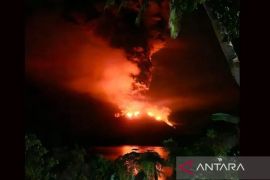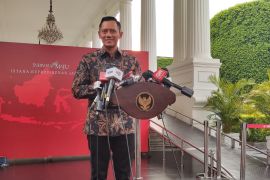DURBAN, South Africa, Dec. 7, 2011 (ANTARA/PRNewswire-AsiaNet) --
- NGO says Indonesia should safeguard economic growth now that this week's climate change negotiations in Durban have made clear that no global agreement to reduce emissions is possible
World Growth, a US-based development NGO has released a report demonstrating there is a significant gulf between Indonesia and other developing countries on climate change.
(Logo: http://photos.prnewswire.com/prnh/20111128/DC13195LOGO )
The report - Restricting Growth: The Impact of Industrialized Country Climate Strategies on the World's Poor – reveals how measures on restricting land conversion and forestry will reduce economic growth in developing countries and increase the likelihood the UNFCCC process will fail.
World Growth Chairman Ambassador Alan Oxley released the following statement:
"The major emerging economies in the BASIC group (Brazil, South Africa, India and China) have made clear to the European Union and the US that they will not compromise economic growth and reduce emissions until developed countries have taken the lead under the Kyoto Protocol. This position has also been supported by Thailand and Malaysia.
"Indonesia, on the other hand, has pledged to reduce its emissions by 26 to 40 per cent in the next few years.
"Not only is this is a bigger commitment than most developing countries, it is a bigger commitment than major rich countries: Japan and Canada are stepping away from the Kyoto Protocol, and the US will not ratify it. They are not likely to make new, binding commitments in the near future.
"Indonesia should reconsider its commitment to reduce emissions while rich countries are effectively doing nothing.
"This is underlined by new research commissioned by Norway and the World Bank that has reduced the official UN assessment of emissions from deforestation in Indonesia by 75 percent.
"The current Indonesian pledge will have a detrimental impact on growth of the forestry, plantation and mining industries throughout the country, and thereby the whole economy. This would hamper economic development and poverty reduction measures and prevent Indonesia from maintaining its exceptional economic growth rates.
"Going into a period of economic uncertainty that is being exacerbated by the Eurozone crisis, Indonesia should be doing everything it can to safeguard economic growth."
Click here to read the report, Restricting Growth: The Impact of Industrialized Country Climate Strategies on the World's Poor.
(http://www.worldgrowth.org/assets/files/WG_Durban_REDD_Report_12_11.pdf )
To speak with World Growth's experts or find out more about its work, please email media@worldgrowth.org or call +1-866-467-7200.
World Growth is an international non-governmental organization established to expand the research, information, advocacy, and other resources to improve the economic conditions and living standards in developing and transitional countries. At World Growth, we embrace the age of globalization and the power of free trade to eradicate poverty and create jobs and opportunities. World Growth supports the production of palm oil and the use of forestry as a means to promote economic growth, reduce poverty and mitigate greenhouse gas emissions. World Growth believes a robust cultivation of palm oil and forestry provides an effective means of environmental stewardship that can serve as the catalyst for increasing social and economic development. For more information on World Growth, visit www.worldgrowth.org.
SOURCE World Growth
Editor: PR Wire
Copyright © ANTARA 2011











